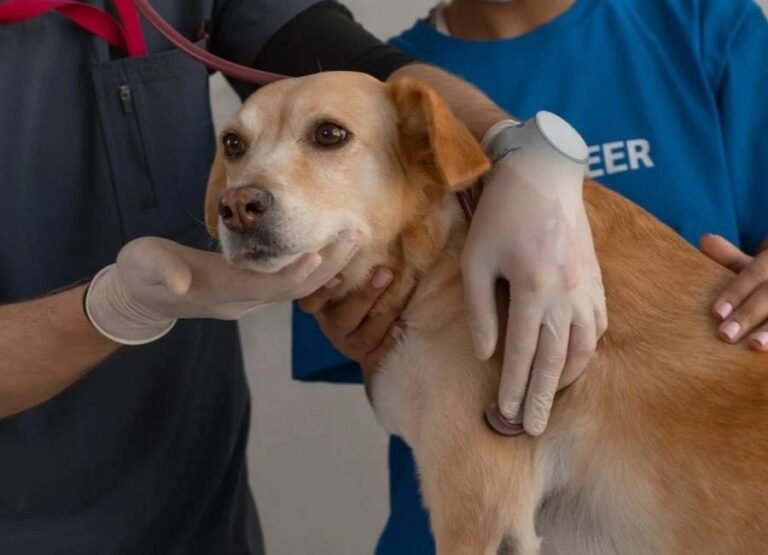12 Potential Reasons For French Bulldog Shaking

French bulldog shaking could mean different things at different times some of which require medical attention while others require the owner’s attention.
In this post, we will be discussing some of the most common causes of French bulldog shaking and things you should know.
You will also learn what each body part of French bulldog shaking means so keep reading…
Causes of French bulldog shaking

Shivering or shaking in French Bulldogs can be brought on by a severe condition, such as poisoning, signs of cold, arthritis, generalized tremor syndrome, renal failure, or injury.
If your Frenchie begins to shake or shiver, search for additional symptoms like vomiting, diarrhea, or limping, and then call your veterinarian straight soon.
You should be aware of the following reasons why your French Bulldog may be shaking or shivering:
1. Frenchie is overly excited
This form of shaking is normally short and can always be identified by owners.
Because they were raised to thrive on human company, Frenchies get quite excited when a family member arrives home.
Frenchies may occasionally be observed shaking or shivering as a response to this excitement, which is not an indication of worry or disease.
Similar to this, when Frenchie is about to eat their favorite dish or play with their favorite toy, they could be seen shaking and shivering.
Some Frenchies may shake, yell, and even urinate out of excitement upon their owners returning home late at night; this is not a sign of disease.
Even though some of these traits are typical of companion dogs like Frenchies, you may help your Frenchie unwind by giving calm, quick welcomes.
2. Signs of cold

A Frenchie’s usual body temperature is between 37 and 38 °C, thus if the room or environment’s temperature dips, your Frenchie will be impacted.
Despite having short, thick coats, Frenchies can still be chilly; however, this all depends on where you live.
If the temperature in the area lowers to a level that your dog can’t manage, your Frenchie can start trembling.
So if your Frenchie starts to tremble, check the temperature of your surroundings to see whether it’s too low for your dog.
3. Indication of hypoglycemia
Hypoglycemia, which happens when your Frenchie’s blood sugar levels drop quickly, makes your Frenchie’s body shake.
Some French Bulldogs have a known predisposition for hypoglycemia or low blood sugar.
This may occur if your dog is underfed or overstimulated.
This sickness may be triggered by insulin for diabetes and is typically characterized by drowsiness followed by severe shaking.
Your Frenchie can get a seizure or go into a coma if you don’t treat it.
This issue is more prevalent in young French Bulldogs since their capacity to control blood sugar levels has not completely developed (up to 5 months).
Hypoglycemia can cause your Frenchie to lose consciousness or, in the worst instance, result in death if it is not addressed.
Here are some common signs of hypoglycemia in dogs:
- Loss of appetite
- extreme lethargy
- lack of coordination
- trembling
- muscle twitching
- weakness
- seizures
- discoloration of skin and gums.
See your vet immediately if your Frenchie is shaking, and you are seeing these signs.
4. Old age
One of the small dog breeds with the longest lifespans is the French Bulldog, with some individuals living to reach 16 years or older.
They live longer than most breeds, which results in health issues as they age, which makes their legs weak and can cause trembling.
Until you speak with your veterinarian, there isn’t much you can do to help an elderly French Bulldog that shakes or shivers.
As a result of several aging-related health problems, their joints are weak and ancient and are no longer able to support the weight of their bodies.
Senior French Bulldogs are more prone to experience back and front limb tremors, which can make it difficult for them to move normally and cause trembling or shivering.
5. Generalized Tremor Syndrome
Generalized tremor syndrome is more likely to affect French Bulldogs, Pugs, Boston terriers, Shih Tzus, and Chihuahuas than other small breeds.
This condition, sometimes known as shaker syndrome, is characterized by full-body tremors, comparable to those a dog experiences when it’s cold.
Although different dogs have different generalized tremor syndrome symptoms, it most frequently affects French Bulldogs between the ages of three and five.
Although the exact etiology of widespread tremor syndrome is unknown, it is widely accepted that it is not fatal.
Always see your veterinarian if your Frenchie continues to shake for no apparent reason.
6. Chronic nausea and diarrhea
French Bulldogs tremor a lot, which is immediately seen when they suffer chronic nausea and diarrhea or are constipated.
Chronic nausea can cause shaking during lengthy car rides or eating unappealing foods.
Chronic nausea can cause vomiting, drooling, loss of coordination, shivering, and yawning, among other symptoms.
Take into account your Frenchie’s daily routine, diet, and how being shaken often affects him.
For instance, the tremendous daily vehicle ride you enjoy may be the reason why your Frenchie is shaking.
7. Toxin ingestion
Some medications can induce shaking in dogs like French Bulldogs yet are safe for people.
While the nicotine in cigarettes is bad for you, xylitol, a sugar replacement, is a common ingredient in chewing gum.
Frenchie and other little dogs are especially susceptible to both.
These poisons or substances can cause considerable shaking and shivers in little canines like Frenchies.
Your French bulldog could quiver or shudder in response to a bee sting, a snake bite, acute food poisoning, or scorpion stings.
Even if you don’t see your Frenchie come into contact with something dangerous or toxic, this is still a huge worry.
For instance, French Bulldogs quickly respond to toxins because of their size and power.
As a result, keep your Frenchie away from potentially hazardous substances and animals.
Please take your Frenchie to the vet if you suspect or detect that he may have consumed anything dangerous or was bitten by a tiny animal.
Additional French bulldog toxin ingestion symptoms include:
- Continues vomiting
- Sudden Weakness
- Fainting
- Difficulty breathing
- Disorientation
8. Seizures
Epilepsy is a neurological illness that affects both large and small dogs, as well as other animals, and produces collapse and jerking in certain canines.
The primary cause of seizures in dogs is aberrant brain activity, this can happen in French Bulldogs.
The episodes, which take place over time and are referred to as such, are invariably accompanied by violent shaking of the dog’s entire body.
Even while the dog may not feel any pain during seizures, the dog may sustain injury if it stumbles or knocks things over and into itself.
Call your veterinarian as soon as your Frenchie starts having seizures. This can be treated with medications that prevent seizures.
9. Chronic pain and canine arthritis
Your older French Bulldog may be experiencing one of the symptoms of canine arthritis if he shakes or chills, particularly in the hindquarters.
Painful conditions that can affect little dogs like Frenchies include infections, trauma, and even dental problems.
Your dog’s suffering may have a number of different causes, and your veterinarian may advise additional diagnostic procedures or pain medication.
In addition to more common conditions like stomach ache, shaking, shivering, and muscle tremors might signify severe disorders including distemper, hypoglycemia, Addison’s disease, and inflammatory brain disease.
Pay special attention to your French Bulldog if you observe an involuntary shaking since too much discomfort might lead French Bulldogs to shiver or tremble all the time.
10. Intense fear
One of the most frequent causes of Frenchie’s shaking is fear.
It’s important to keep in mind that every dog is different and that what scares one dog might not scare another.
For instance, owners of Frenchies routinely lift and carry their canines.
You might be surprised to learn that your French Bulldog is most afraid of heights.
It’s important to pay attention to your Frenchie’s environmental cues and keep an eye out for symptoms of distress.
Keep Frenchie away from loud noises like gunshots, fireworks, thunder, and other loud noises since they might startle her.
Read more: How To Take Care Of A French Bulldog: Complete Guide.
11. Addison’s disease
Pain, which is a fairly typical case of Addison’s disease, maybe the source of shivering or shaking in your Frenchie.
It might be difficult to determine your Frenchie’s level of discomfort or what is making them hurt.
You won’t be able to tell when to worry or whether your baby has to be taken right away to the doctor.
There are some general guidelines below, however, this is frequently a question of discretion.
It’s often a sign of stress and more intense pain or discomfort if the trembling and shaking are accompanied by heavy panting.
Read more: 16 French Bulldogs Health Problems Control & Preventions.
12. Canine distemper
The virus is known as distemper primarily affects puppies and young dogs that have not had all of their vaccinations.
In Frenchies, trembling and shaking are signs of distemper.
Other symptoms include nasal and eye discharge, fever, and coughing.
The distemper virus impacts the digestive, nervous, and respiratory systems.
Both large and tiny dogs, including Frenchies, typically die from the distemper signs and symptoms.
The good news is that the distemper seldom affects French Bulldogs because they are all fully immunized.
Shaking is a typical indicator of canine distemper, so always keep that in mind, it’s worth remembering.
Read more: 20 French Bulldog Sick Symptoms & What it Indicate.
What to do when your Frenchie shake
To properly assist your dog through the episode, it’s crucial to maintain your composure when they are suffering a seizure.
Your dog may sense your anxiety and grow more terrified, which will make the situation much more difficult if you start to worry.
If your French Bulldog starts to tremble, it’s critical to first evaluate the situation.
Is the weather there too cold or is there anything frightening or stressful that your Frenchie!
You may assist your Frenchie in calming down by removing these stressors.
Your dog will display signs including trembling, confusion, and lack of coordination.
It could also begin to gallop about without paying attention to its surroundings.
In order to avoid it from falling or hurting itself, take your Frenchie to a safe area away from stairs or the edge of the bed.
Throughout the incident, you must remain nearby to watch over your Frenchie and provide reassurance for it.
AVOID touching your Frenchie because it can get more frightened and bite you out of self-defense.
Instead, it’s advised to sit next to the Frenchie and speak to it softly to comfort it.
The best course of action is to call the veterinarian if there are no outside factors that might cause shaking.
Read more: Can French Bulldogs Be Left Alone: Useful Tips To Note.
French bulldog shaking tips
Let’s go more precise with a few typical causes of a certain kind of French bulldog shaking:
French bulldog panting
Numerous things, including stress, increased pain, discomfort, poisoning, renal disease, injury, allergic reactions, toxins, bites, and stings, can make French Bulldogs pant and shiver excessively.
Make an appointment with your veterinarian if your French Bulldog exhibits shaking, especially if it isn’t caused by excitement.
French bulldog shaking and vomiting
An upset stomach brought on by whatever the French bulldog ate, such as a poisonous chemical, an onion ball, a garlic ball, or a dangerous plant, might cause the French bulldog to shake and vomit.
Additionally, a bloated stomach, pancreatitis, or a renal condition may be to blame.
Trembling and vomiting in your French bulldog are symptoms of an illness, and you should take them to the doctor as soon as you can.
Keep an eye on how frequently they are throwing up as well as the amount and color of their vomit.
If it doesn’t stop within a few hours, call your veterinarian straight once.
French bulldog shaking its head
Frenchies’ head shaking can be brought on by a number of medical conditions, including ear infections, flea bites on the skin of the head, allergies, and head tremors as a result of head trauma.
However, aging or other ailments might also be to blame for Frenchie’s head shaking.
Due to the shape of their ears, Frenchies are prone to ear infections, which are among the most frequent conditions for which their owners take their dogs to the vet each year.
French Bulldogs’ head shaking might be an indication of an ear infection, ear mites, parasites, allergies, hematoma, toxins, or even balance problems as they age.
Call your veterinarian if nothing seems amiss after checking their ears but the behavior persists.
Read more: 16 French Bulldog Separation Anxiety Signs & 15 Ways To Fix Them.
French bulldog shaking its legs
French bulldogs’ rear legs trembling might be caused by patellar luxation or generalized tremor syndrome, which is common in breeds like French Bulldogs, miniature pinschers, and Chihuahuas.
Do not be alarmed if your dog shakes sometimes; shaking does not necessarily indicate a neck or spine injury or a neurological issue.
Most frequently, aging-related symptoms like anxiety, colds, or tremors are to blame.
Patellar luxation, often known as sliding or floating kneecaps, is a common ailment that affects many dogs’ hind legs, especially small breeds like the French bulldog.
The patella is the medical name for a kneecap, and luxation simply means that it has moved.
With the information provided on this page, I strongly hope your concerns about French bulldog shaking were resolved.




![Why Is My Dog Suddenly Sneezing So Much [8 Reasons] Why Is My Dog Suddenly Sneezing So Much](https://petcreeks.com/wp-content/uploads/2023/04/Why-Is-My-Dog-Suddenly-Sneezing-So-Much-768x555.jpg)
![Dog Paw Infections [Causes, Signs & More] Dog Paw Infections](https://petcreeks.com/wp-content/uploads/2023/09/natalie-parham-1dQuP79kLfg-unsplash-1.jpg)
